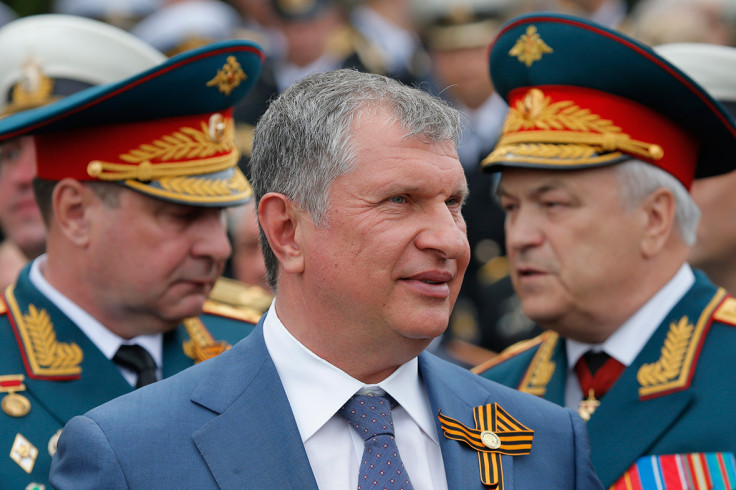Lloyds Withdraws from Rosneft Deal as Sanctions Continue to Hit Russian Trade

Lloyds Bank has pulled out of a deal to lend up to $2bn (£1.19bn, €1.46bn) to BP for the purchase of Rosneft crude oil.
Two bankers close to the deal told Reuters that the decision was made on the back of the ongoing political turmoil in Russia.
Lloyds, 25% owned by the Brtitish government, had been named as mandated lead arranger for the loan alongside Deutsche Bank, HSBC and the Bank of China.
The deal is now expected to progress without Lloyds.
A senior HSBC trade finance banker confirmed to IBTimes UK that the bank is also not looking to open new business in Russia, due to the lack of clarity over future sanctions. The banker said that HSBC had recently declined to open a new line of credit with Fiat in Russia in recent weeks.
Rosneft has been involved in some of the world's biggest trade loans in recent years.
In January 2013 it raised more than $16bn on the international markets to fund the purchase of TNK-BP. Among the lenders were Britain's Barclays and France's BNP Paribas and Crédit Agricole.
Two months later, mining giant Glencore Xstrata secured $10bn in prepayment finance for the purchase of crude oil from Rosneft. The finance was provided by a syndicate of international banks including Lloyds, HSBC, Barclays and Bank of America.
In June 2013, Rosneft then secured a $2bn credit line from the China Development Bank and, in the same month, a $1.5bn loan from commodity trader Trafigura.
With chief executive Igor Sechin appearing on a list of individuals sanctioned by the US in April -- after Russia annexed Crimea following a disputed referendum -- Rosneft is unlikely to be able to do the same any time soon.
Since sanctions kicked in earlier this year, a number of high profile deals have been affected.
In April, the Bank of America and the Royal Bank of Scotland pulled out of a proposed syndicated $1bn loan for the Russian gas producer Sibur after Gennady Timchenko, who owns a 37.5% stake in the company, was sanctioned by the US.
A banker close to the deal told Reuters: "Lloyds' decision to leave the deal is because it does not want to embarrass the government, considering the current political situation with Russia. I think it was scared of going upstairs to ask permission."
© Copyright IBTimes 2024. All rights reserved.






